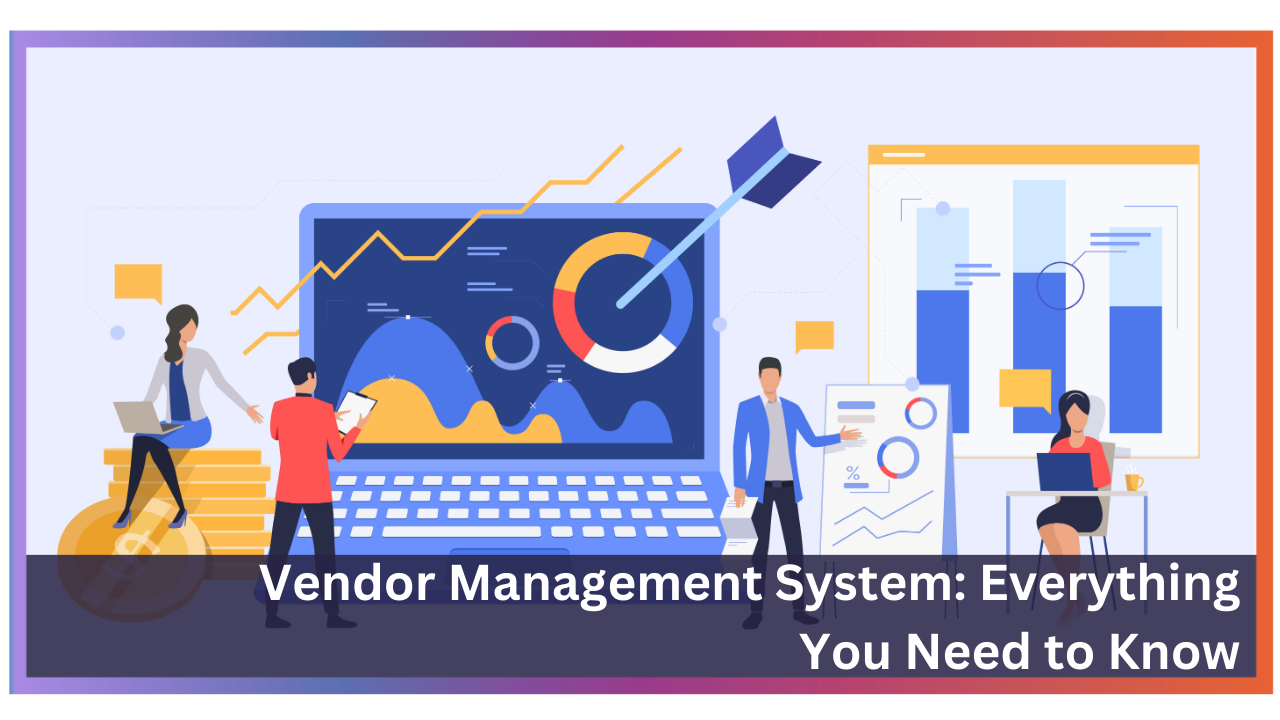Vendor Management System: Everything You Need to Know
Posted On: Dec 19, 2023
According to a report by Technavio's, Vendor Mangement Software market is projected to experience a Compound Annual Growth Rate (CAGR) of 12.83% from 2023 to 2028, with an estimated market size expansion of USD 5.34 billion. This growth is attributed to various factors, including the rising uptake of cloud-based vendor management system, the implementation of customer-centric pricing strategies, and the imperative to adhere to regulatory requirements.
In this blog, we will provide a concise yet comprehensive overview of everything one needs to know about Vendor Management System that can assist organizations in streamlining their procedures and taking the lead in the market. From its fundamental definition to its critical role in optimizing vendor relationships and ensuring operational efficiency, we delve into the key facets that underscore the significance of Vendor Management System in modern business.
What is a Vendor Management System?
A vendor management system is a versatile platform designed to assist businesses of all sizes in managing vendor relationships effectively. Serving as a centralized hub, the system allows organizations and vendors to consolidate and store essential data. It provides tools for seamless vendor onboarding, continuous performance monitoring, and ensuring adherence to compliance standards.

Why do businesses need an effective vendor management system?
A proficient vendor management system transforms how organizations engage with their vendors. It safeguards confidential vendor information while providing extensive visibility into vendor data and performance. The consistently accurate vendor data serves as a foundation for strategic sourcing and procurement decisions. This user-friendly, comprehensive tool streamlines the onboarding, maintenance, and management of vendors.
Furthermore, purchase-to-pay solutions meticulously monitor every facet of vendor performance and contractual obligations, encompassing delivery timelines and product/service quality. Automated workflows and rule-based processes guarantee compliance and promptly signal any deviations from policy adherence.
Here are the key factors driving the demand of an effective vendor management system:
- Cost Challenges: High implementation and maintenance costs associated with on-premises vendor management systems pose a significant obstacle for organizations.
- Preference for Cloud Solutions: Many enterprises are increasingly opting for standalone, cloud-based, and user-friendly vendor management systems to address various challenges, such as on-premises operating costs, data insecurity, user experience challenges, etc.
- Automation Benefits: Cloud-based platforms facilitate the automation and streamlining of vendor relationships, empowering users to control key procurement processes, including self-vendor onboarding, automated purchase orders, invoice generation, three-way matching, and payment processing.
What essential features should a vendor management system provide?
For enterprises to prioritize a vendor management system, it would be offering the following essential features.
- Easy vendor onboarding: Manual workflows and human involvement contribute significantly to the sluggishness in vendor onboarding, often resulting in unnecessary delays and oversights. An effective vendor management system streamlines and automates tasks, consolidating the onboarding process in one platform. This eliminates the need to navigate between multiple tools, enhancing collaboration and preventing document versioning issues.
- Smart dashboard: The smart dashboard allows organizations to evaluate vendor performance and generate a report. Beyond the central repository and dashboard, vendor management systems should provide tools for handling various aspects of vendor relationships, including contract creation, payment tracking, and dispute resolution.
- Centralized data management: A vendor management system serves as a comprehensive database for enterprises, housing supplier information such as names, addresses, and contact details, alongside pricing details, volume discounts, and contract specifics. By consolidating this diverse data into a unified hub, the system facilitates collaboration between organizations and vendors.
- Dynamic workflows: Dynamic workflows enable the flexible movement of documents through a process, adapting to changing requirements. By incorporating dynamic routing, organizations can ensure that each document follows a tailored path, enhancing precision and speeding up processes. The ability to define and automate these routes based on established criteria streamlines operations and reduces manual intervention. In essence, dynamic workflows empower organizations to create agile and responsive document processing systems.
- Enhanced collaboration and communication: It is a pivotal advantage of a vendor management platform. In the absence of such a system, procurement executives often grapple with the inefficiencies of email communication, numerous supplier meetings, and document-sharing complexities. A vendor management platform transforms this scenario by providing a centralized hub for collaboration, enabling RFQ/RFP, task delegation, and rapid decision-making through automated notifications and tasks.
- Risk mitigation: Risk mitigation in vendor management software includes strategies and actions equipped to identify, assess, and minimize potential risks associated with third-party vendors. This process is to safeguard an organization from various threats, such as due diligence, contractual protections, compliance management, etc. that could affect its operations, reputation, or compliance with regulations.
What is a Partner Portal?
Partner Portal, a cloud-based vendor management system, lets organizations manage their vendors on a centralized platform. The system provides significant features such as easy vendor onboarding, automated procurement process, easy & real-time inventory management, invoice generator, vendor performance management, and many more. Its smart dashboard provides transparent visibility of vendors as well as organizations.
Partner Portal is a reliable solution for your vendor management requirements. This all-inclusive, user-friendly system seamlessly integrates with your business processes, prioritizing security and compliance through industry-standard practices. Partner Portal is an adaptable and intelligent system that aligns with your evolving vendor management strategy. For a comprehensive software solution combining flexibility, functionality, and excellent service, consider upgrading to Partner Portal.
